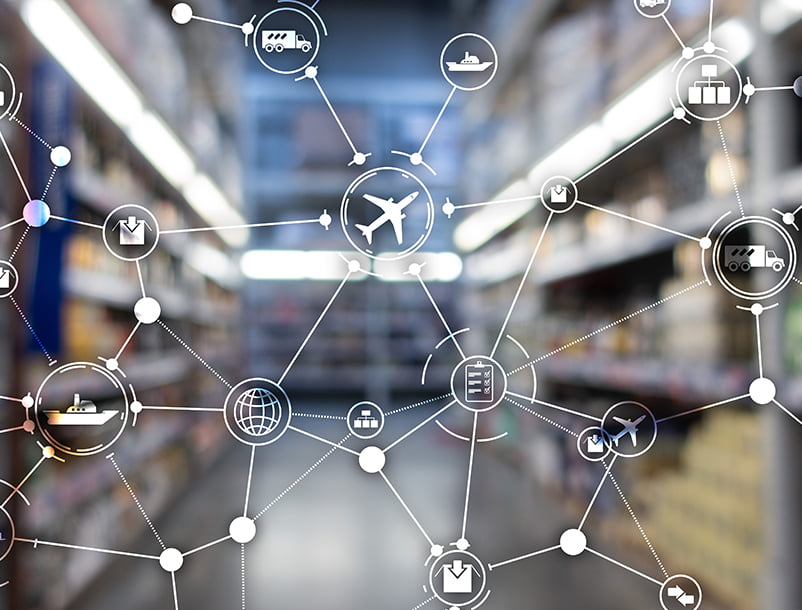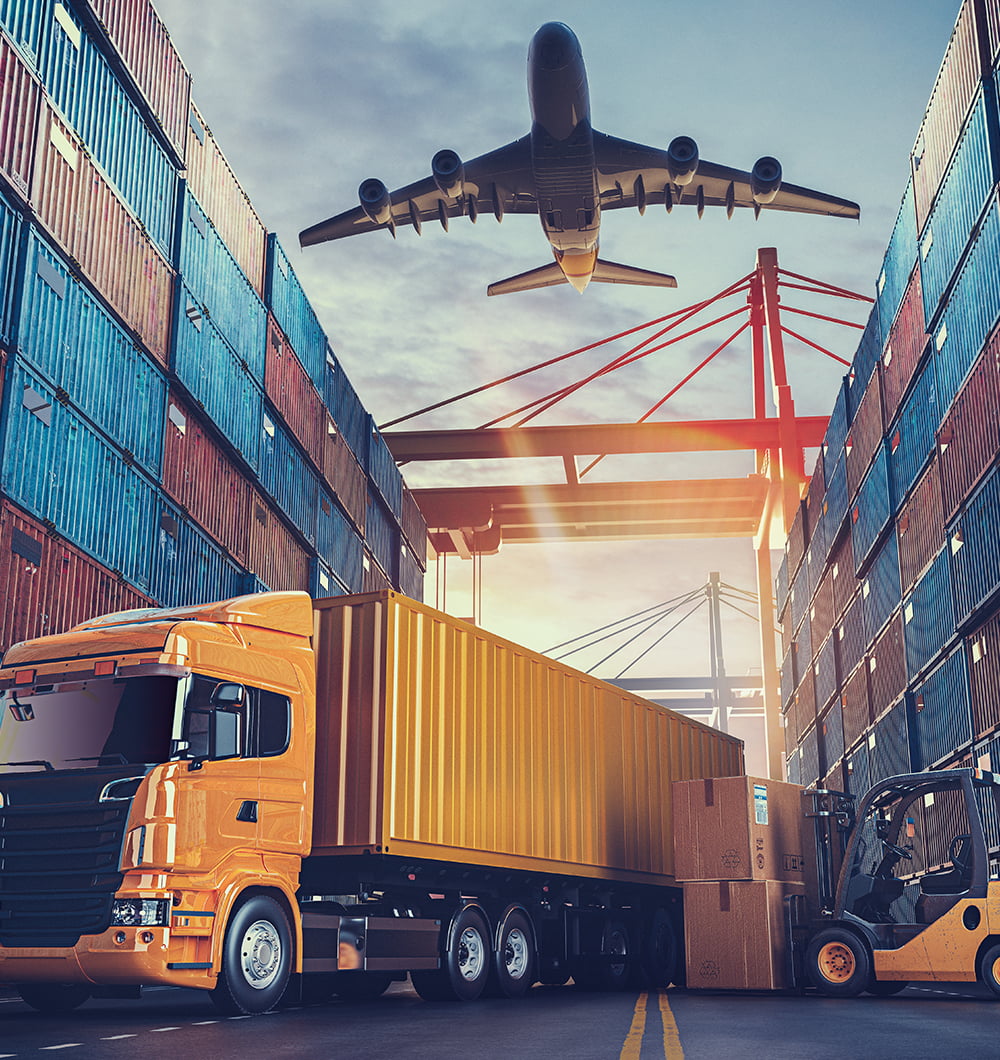Logistics
Logistics software solutions are software systems that are used to effectively manage the storage, transportation and distribution processes of goods and services. Logistics software solutions help you optimize your logistics operations, reduce costs, increase customer satisfaction and achieve your sustainability goals.
What Areas Are Logistics Software Solutions Used In?
Logistics software solutions can be used in different sectors and types of businesses. Some examples of logistics software solutions are:
E-commerce: E-commerce businesses can offer their customers fast, secure and cost-effective delivery options thanks to logistics software solutions. They can also monitor their logistics processes, optimize their inventory management and facilitate their return processes.
Retail: Retail businesses can achieve a seamless integration between their store and online channels thanks to logistics software solutions. They can also fulfill their orders accurately, control their stock levels and increase their customer loyalty.
Manufacturing: Manufacturing businesses can improve their supply chain management thanks to logistics software solutions. They can also do their production planning and scheduling, calculate their material needs and ensure their product quality.
Healthcare: Healthcare businesses can enhance their patient care and safety thanks to logistics software solutions. They can also manage their medical supplies and drug distribution, meet their cold chain requirements and comply with regulations.
Automotive: Automotive businesses can optimize their vehicle production and distribution thanks to logistics software solutions. They can also coordinate their part supply, plan their vehicle service and track their vehicles.


Benefits of Logistics Software Solutions
Logistics software solutions enable you to automate, monitor and analyze your logistics processes. Some benefits of logistics software solutions are:
- You save time and money. Logistics software solutions allow you to plan and manage your orders, inventory and transportation resources wisely. They also help you choose the best carriers and routes, compare shipping rates and take advantage of discounts.
- You improve your customer experience. Logistics software solutions enable you to provide your customers with real-time shipment status information and solve problems quickly. They also help you respond to customer requests faster and more flexibly and offer them customized delivery options.
- You reduce risks and ensure compliance. Logistics software solutions help you prevent or minimize disruptions, delays and losses in your logistics processes. They also help you facilitate your customs procedures and comply with local and international regulations.
- You increase efficiency and quality. Logistics software solutions help you eliminate or reduce inefficiencies and errors in your logistics processes. They also help you measure and improve your logistics performance.
- You support sustainability. Logistics software solutions help you reduce your carbon footprint and adopt green logistics practices. For example, you can choose the most efficient routes to reduce fuel consumption or switch to renewable energy sources.

Types of Logistics Software Solutions
Logistics software solutions can be divided into various types to support different logistics processes. Some types of logistics software solutions are:
- Warehouse Management Software (WMS): Software used to automate warehouse operations, track and optimize inventory, fulfill orders, and manage warehouse personnel.
- Transportation Management Software (TMS): Software used to plan, execute, and monitor transportation operations, select and manage carriers, calculate and pay shipping fees, generate shipping documents, and report.
- Yard Management Software (YMS): Software used to coordinate yard operations, track and direct vehicles and trailers, optimize loading and unloading processes, and ensure security standards.
- Advanced Order Allocation Software (AATP): Software used to allocate customer orders to the best available inventory and transportation capacity, determine order priorities, estimate delivery times, and respond quickly to customer demands.
- Collaboration-Based Transportation Network Software (CBTN): Software used to bring together all stakeholders in logistics processes (e.g., suppliers, partners, employees, customers), facilitate data and information sharing, increase collaboration, and provide visibility of the logistics network.
- Global Tracking and Tracing Software (GTT): Software used to track the location and status of all shipments in the logistics network in real time, report events and alerts, identify and prevent risks.
Logistics Software
Solutions with 99byte
- 99byte is a software company with extensive experience in logistics software solutions. We offer innovative and user-friendly software solutions designed specifically for the logistics industry. Our logistics software solutions support all the logistics processes we mentioned above and adapt to the trends of the future. With our logistics software solutions, you can increase the competitiveness of your logistics business, ensure customer satisfaction, and achieve sustainable growth.

Technologies We Use
Artificial Intelligence (AI) and Machine Learning (ML)
AI and ML are used to make logistics processes smarter, more efficient, and more flexible. For example, we use AI and ML to support logistics decision-making processes in areas such as demand forecasting, route optimization, inventory management, risk analysis, and anomaly detection.
Internet of Things (IoT) and Cloud Computing
IoT and cloud computing connect all devices, sensors, and systems in the logistics network, enabling real-time data collection and sharing. For example, we use IoT and cloud computing to increase logistics visibility and traceability in areas such as tracking the location and status of shipments, monitoring vehicle performance and maintenance, controlling warehouse environment.
Blockchain
and Smart Contracts
Blockchain and smart contracts are used to record, verify, and securely store all transactions in logistics processes. For example, we use blockchain and smart contracts to ensure logistics compliance and efficiency in areas such as speeding up customs procedures, paying shipping fees automatically, verifying shipment ownership and identity.